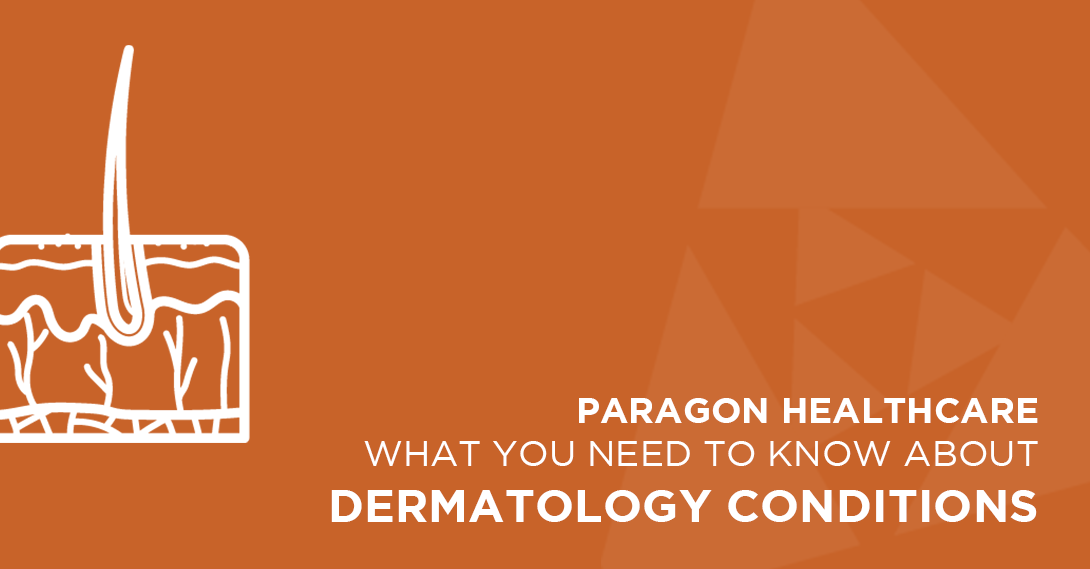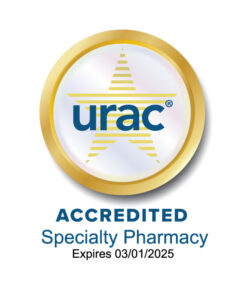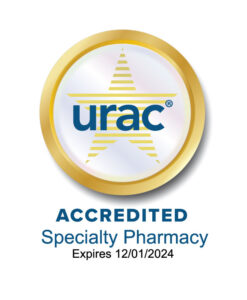At Paragon, we work with dermatologists from all over the nation to treat dermatologic conditions. A dermatologist is a doctor that specializes in the study of the skin. They diagnose and manage skin, hair, and nail disorders. There are many types of skin diseases ranging from eczema to skin cancer.
Paragon provides the most advanced specialty medications to treat dermatologic conditions. We specialize in injectable and infusible drugs to offer our patients the best therapeutic option suited for them. The most commonly diagnosed dermatologic conditions include eczema, atopic dermatitis, plaque psoriasis, and psoriatic arthritis. The medications we offer may be self-administered in the comfort of your own home or may require a healthcare provider to administer it for you at one of our infusion centers.
Common Dermatologic Conditions We Treat:
- Psoriasis – A skin disease that causes red, itchy, and scaly patches, most commonly on the knees, elbows, scalp, and torso. It develops when the body makes skin cells too quickly, causing visible patches to form.
- Atopic dermatitis (AD) – Is the most common type of eczema, which causes the skin to become dry, red, and itchy. It presents in the form of dry and scaly patches on the surface, and it most commonly affects the arms, legs, and face but can occur anywhere on the body.
- Psoriatic Arthritis – A type of arthritis that affects the joints (causing joint pain, stiffness, and swelling) along with the skin disease psoriasis (which causes red, itchy, scaly patches of skin).
Each person's experience with a dermatologic condition is different. Every patient faces different challenges and presents with different symptoms. Paragon's goal is to provide our patients with the best therapeutic option to relieve their symptoms, overcome their challenges, prevent disease progression, and help them adhere to their dermatologist's treatment plan.
Treatments We Offer:
- Dupixent (dupilumab) – Commonly used to treat atopic dermatitis in those who did not respond well to other therapies. It works by reducing inflammation of the skin, which makes the skin look clearer. Dupixent is available as an injectable that can be self-administered after proper training. It can be injected into the thighs or stomach (2 inches away from the belly button) on a clean and intact surface of the skin free of lesions and scars.
- Enbrel (etanercept) – Commonly used to treat psoriatic arthritis and plaque psoriasis by preventing and reducing skin inflammation. Enbrel is available as an injectable that can be self-administered after proper training. It can be injected into the thighs, upper outer arms, or stomach (2 inches away from the belly button) on a clean and intact surface of the skin free of lesions and scars.
- Humira (adalimumab) – Commonly used to treat psoriatic arthritis and plaque psoriasis. It works by blocking TNF-alpha, which prevents and reduces skin inflammation. Humira is available as an injectable that can be self-administered after proper training. It can be injected into the thighs or stomach (2 inches away from the belly button) on a clean and intact surface of the skin free of lesions and scars.
- Siliq (brodalumab) – Commonly used to treat plaque psoriasis. It works by preventing and reducing skin inflammation to prevent plaque build-up. Siliq is available as an injectable that can be self-administered after proper training. It can be injected into the thighs, upper outer arms, or stomach (2 inches away from the belly button) on a clean and intact surface of the skin free of lesions and scars.
- Skyrizi (risankizumab-rzaa) – Commonly used to treat plaque psoriasis. It works by preventing and reducing inflammation of the skin to prevent plaque formation. Skyrizi is available as an injectable that can be self-administered after proper training. It can be injected into the thighs, upper outer arms, or stomach (2 inches away from the belly button) on a clean and intact surface of the skin free of lesions and scars.
- Stelara (ustekinumab) – Commonly used to treat plaque psoriasis and psoriatic arthritis. It works by blocking IL-12 and IL-23, which prevents and reduces the inflammatory process in the skin. Stelara is available as an injectable that can be self-administered by injection after proper training. It can be injected into the thighs, upper outer arms, or stomach (2 inches away from the belly button) on a clean and intact surface of the skin free of lesions and scars.
- Taltz (ixekizzumab) – Commonly used to treat psoriatic arthritis and plaque psoriasis. It works by blocking IL-17, which helps prevent and reduce inflammation of the skin. Taltz is available as an injectable that can be self-administered by injection after proper training. It can be injected into the thighs, upper outer arms, or stomach (2 inches away from the belly button) on a clean and intact surface of the skin free of lesions and scars.
- Tremfya (guselkumab) – Commonly used to treat plaque psoriasis. It works by blocking IL-23, which helps prevent and reduce skin inflammation to prevent plaque formation. Tremfya is available as an injectable that can be self-administered by injection after proper training. It can be injected into the thighs, upper outer arms, or stomach (2 inches away from the belly button) on a clean and intact surface of the skin free of lesions and scars.
- Cosentyx (secukinumab) – Commonly used to treat plaque psoriasis and psoriatic arthritis by preventing and reducing skin inflammation. Cosentyx is available as an injectable that can be self-administered after proper training. It can be injected into the thighs, upper outer arms, or stomach (2 inches away from the belly button) on a clean and intact surface of the skin free of lesions and scars.
- Ilumya (tildrakizumab) – Commonly used to treat plaque psoriasis. It works by blocking IL-23, which reduces skin inflammation, redness, flaking, and plaque thickness. Ilumya is available as an injectable that can be self-administered by injection after proper training. It can be injected into the thighs, upper outer arms, or stomach (2 inches away from the belly button) on a clean and intact surface of the skin free of lesions and scars.
Paragon is here to help improve each of our patients' quality of life. When we receive a medication and supply order, we move quickly to ensure our patients promptly receive everything they need.
If you or a loved one are seeking a healthcare company that puts people first, tell your provider that you want to join the Paragon family. We treat a wide range of conditions that fall under dermatology, gastroenterology, immunology, hepatology, rheumatology, and more. Some of the most common conditions that we treat include multiple sclerosis (MS), Crohn's Disease, primary immune deficiency, and rheumatoid arthritis (RA). Contact us today to learn more at https://paragonhealthcare.com/.







